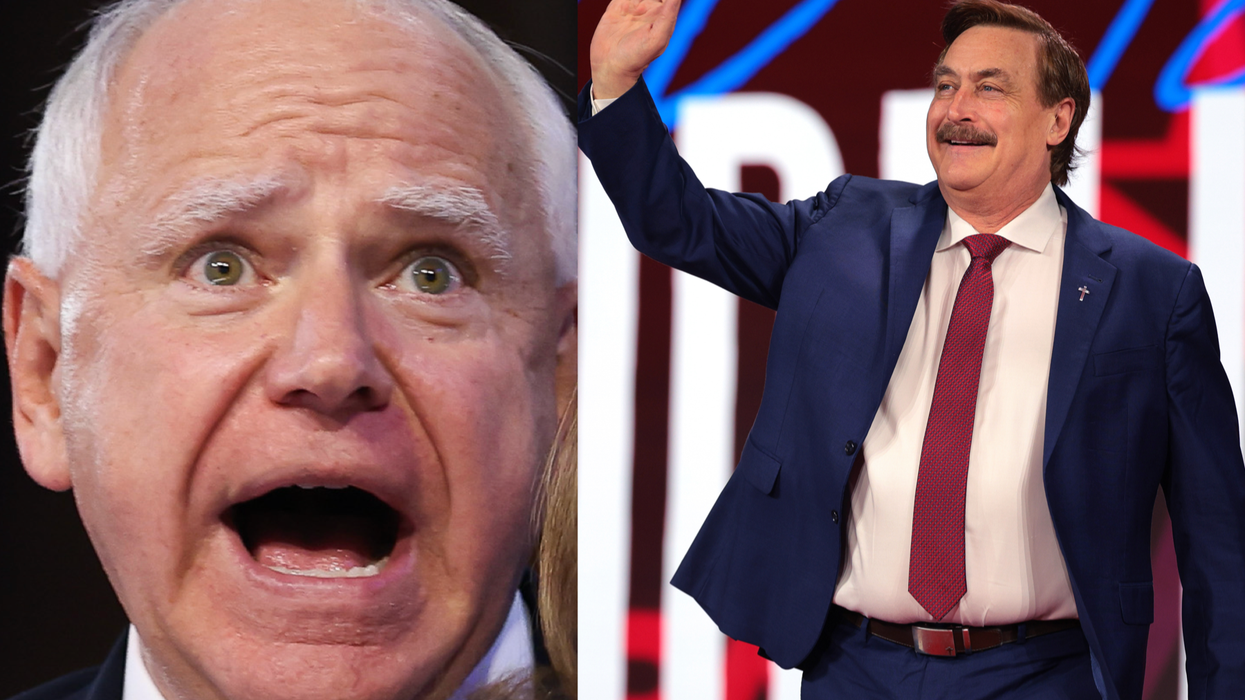
© 2025 Blaze Media LLC. All rights reserved.
There's a popular meme in conservative political Twitter: "Establishment Always Wins." Observing the results of recent primary elections, including Tuesday's contests in eight states, it is apparent that at this moment, the meme is true and the Republican establishment is prevailing over more conservative candidates.
So far in the 2018 primary cycle, only one incumbent House Republican with a moderate voting record has been defeated by a conservative primary challenger. Most GOP incumbents, even the ones who voted for atrocious pieces of legislation like the $1.3 trillion omnibus spending bill, are sailing through Republican primaries unscathed. The pattern held Tuesday night, as no incumbent Republican was defeated in a primary — though Rep. Martha Roby, R-Ala., was forced into a runoff election because she did not win 50 percent of the vote in her first-place finish.
Conservatives are faring slightly better in open primaries, but only slightly. The Texas delegation is poised to shift to the right, as House Freedom Caucus-friendly candidates like Chip Roy have won Republican primaries in safe districts where more moderate Republicans are retiring. Last night, Freedom Caucus-endorsed candidate state Rep. Yvette Herrell won her primary in New Mexico's 2nd Congressional District. But in New Jersey, conservative Steve Lonegan lost to self-described "moderate" John McCann. In past primaries this year, conservatives lost in two open House seats in Indiana, two open seats in Ohio, and the open seat in West Virginia's 3rd Congressional District vacated by Rep. Evan Jenkins, R-W.Va. (F - Liberty Score® ).
There is, sadly, nothing like a Tea Party wave to knock out incumbent Republicans with conservative challengers in 2018 — a fact that may seem surprising after President Donald Trump's dominating anti-establishment 2016 presidential campaign. Where are the voters who decided to block establishment figures like Jeb Bush from the 2016 GOP nomination?
Former White House chief strategist Steve Bannon told the New York Times his theory is that "people are starting to realize that the anti-establishment thing is kind of a luxury we can't afford right now." However, Congress' abysmal approval rating and the prevalence of Republicans running on Trump's "drain the swamp" message seems to show voters are as fed up as ever with the Washington status quo. So why are Republican incumbents winning primaries when they are a part of this failing status quo? Counterintuitively, it's because Donald Trump is the president.
Trump, as president, is the de facto head of the Republican Party. Whenever he uses his bully pulpit to declare that his administration wants to drain the swamp, the perception he creates among Republican voters is that the whole party is trying to drain the swamp. In politics, perception is reality. If a Republican running for Congress declares support for the president (virtually all of them have), then the perception among voters is that this candidate wants to drain the swamp.
In this way, in Republican primary contests in 2018, voters are identifying the anti-establishment candidates as the candidates who are most pro-Trump or the ones Trump supports.
Tuesday's election results bear this out. The one Republican incumbent in trouble, Roby, is facing backlash because during the 2016 election, she declared she would not vote for Trump in the general. In the race where conservative Lonegan lost, his moderate Republican opponent deployed a brutal ad accusing Lonegan, a 2016 Cruz supporter and "free the delegates" activist during the Republican National Convention, of being anti-Trump. The ad featured clips of the president referring to Lonegan as a "loser."
The big surprise of the night happened in New Jersey's 2nd Congressional District, where 69-year-old attorney Seth Grossman came out of nowhere to win a four-man race with an underfunded campaign. Grossman ran an unabashedly pro-Trump campaign, adopting the president's positions on immigration, supporting repeal of Obamacare's mandates, teaching "what made America great in our schools again," and stopping "obstruction and fake impeachment charges" against Trump. Running as the most pro-Trump candidate worked, and he shocked observers by winning the primary with double digits over the closest runner-up.
Republican primary voters are not looking for conservatives to challenge the GOP establishment in this cycle. They are looking for candidates who support President Trump's agenda, because that agenda is perceived as the anti-establishment agenda.
The danger here lies in the fact that moderate and liberal Republican incumbents are being re-nominated in GOP primary contests even though they do not support Trump's mission of draining the swamp. And disappointingly, President Trump continues to endorse failing-grade Liberty Score® incumbents like Sen. Roger Wicker, R-Miss., who have spent their careers in Washington D.C. creating the status quo voters elected Trump to disrupt.
#mc_embed_signup{background:#fff; clear:left; font:14px}
/* Add your own MailChimp form style overrides in your site stylesheet or in this style block.
We recommend moving this block and the preceding CSS link to the HEAD of your HTML file. */
Want to leave a tip?
We answer to you. Help keep our content free of advertisers and big tech censorship by leaving a tip today.
Want to join the conversation?
Already a subscriber?
more stories
Sign up for the Blaze newsletter
By signing up, you agree to our Privacy Policy and Terms of Use, and agree to receive content that may sometimes include advertisements. You may opt out at any time.
Related Content
© 2025 Blaze Media LLC. All rights reserved.
Get the stories that matter most delivered directly to your inbox.
By signing up, you agree to our Privacy Policy and Terms of Use, and agree to receive content that may sometimes include advertisements. You may opt out at any time.






